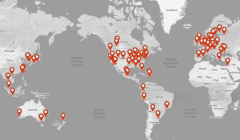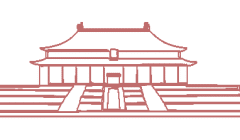Steely-hand of Chinese Communist Media Censorship Felt in Canada
CBC Cancels Documentary at Behest of Chinese Embassy in Disturbing Move
TORONTO – According to reports from the International Herald Tribune, the New York Times, and numerous other media outlets, the Canadian Broadcasting Corporation (CBC) pulled a much-publicized documentary from its scheduled slot just hours before it was to air Tuesday evening after receiving calls from the Chinese Embassy in Ottawa.
CBC is reportedly slated to broadcast the Beijing Olympics in 2008, and would have likely seen any overtures from the Embassy, whatever their content, as threatening the corporation’s business prospect.
The documentary, entitled Beyond the Red Wall: The Persecution of the Falun Gong, is said to document the lives of Falun Gong adherents living as refugees in Canada, as well as the persecution of adherents in China more broadly through interviewing eye witnesses and respected experts including Ian Johnston, the recipient of a Pulitzer Prize in journalism for his reporting on the Falun Gong.
“The implications of this move are unmistakable, and disturbing: that China’s economic clout is being used by Party rulers to bend and compromise the very values so basic to the health of a free society, such as freedom of the press,” said Falun Dafa Information Center’s Canadian media director Joel Chipkar on Saturday. “It is imperative that the privilege of holding the Olympics not be turned into a political tool that may be used internationally to the detriment of free societies and cherished traditions such as journalistic independence. The drive to squelch open and honest discussion that the Party enacts in China must not be allowed to play out in democratic nations such as Canada.”
The bullying of CBC represents the latest effort on the part of Beijing’s communist rulers to and rework public opinion in the West. Not interested in changing its abusive rule, Beijing’s communist leaders instead seek to stifle reporting on human rights abuses in China while simultaneously undermining support, or even concern, in the West for these victims.
More common efforts seen in recent months include sending diplomatic representations to elected U.S. officials who have expressed support for the rights of groups such as the Falun Gong, trying even to force rescission of supportive proclamations in small, unknown towns. Less well known initiatives involve instigating vulnerable Chinese college students and clubs to write elected officials and media reiterating the Party line on the Falun Gong, or Taiwan, Tibet, etc., giving the impression of “popular discontent” for the said official’s decision or media entity’s coverage.
Other operatives include the systematic posting of disinformation online, often under fictitious names, and the coercive use of business interests (as in the case of CBC). Even China scholars are not outside the scope of such manipulations, as the threat of lack of access to China looms menacingly over the scholar’s head, inducing what Perry Link and other leading China scholars have described as self-policing.
The Information Center Saturday furthermore called upon Western governments and institutions—and in particular, media companies—to be vigilant against such influences and guard the very integrity of their ventures.
“To have a foreign, Communist dictatorship now dictating what we in the West get to watch on Television is a frightening prospect,” Chipkar said.








